 Author Robert Aickman preferred to be called a writer of “strange fiction” rather than ghost or horror stories. The Hospice, considered one of his best, is a good example of why. The story is full of unexplained twists and turns. It builds to what readers expect will be a typical horror climax, then seemingly falls flat with the protagonist safely on his way home. But is he? It’s easy to see why Aickman has been called the English Kafka. Was it a dream? Delirium caused by an animal bite? Supernatural forces? Or did he die along the way? More…
Author Robert Aickman preferred to be called a writer of “strange fiction” rather than ghost or horror stories. The Hospice, considered one of his best, is a good example of why. The story is full of unexplained twists and turns. It builds to what readers expect will be a typical horror climax, then seemingly falls flat with the protagonist safely on his way home. But is he? It’s easy to see why Aickman has been called the English Kafka. Was it a dream? Delirium caused by an animal bite? Supernatural forces? Or did he die along the way? More…
Archives
The Chosen Vessel
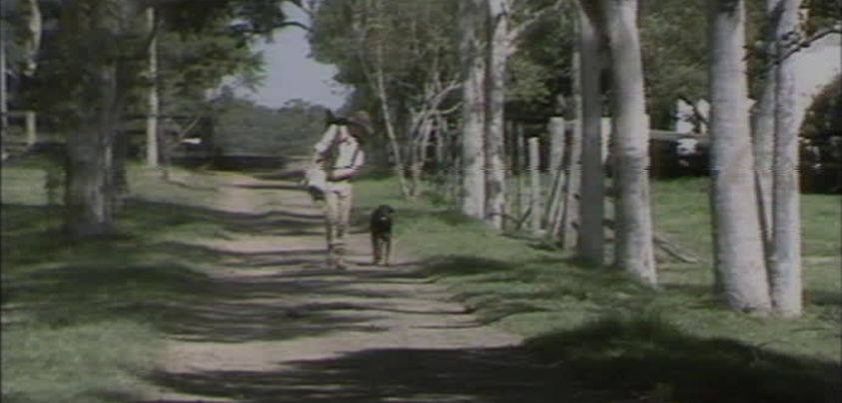 This story by Barbara Baynton paints a graphic picture of the isolation and dangers faced by women living in ‘outback’ Australia during the 19th century. A ‘swagman’ traveling the countryside looking for work visits a woman on a farm whose husband is away. She does not like the way he looks at her, and locks herself and her baby in their house. The man is about to break in when they hear a horse rider coming. The woman runs outside and calls for help. However, when the horse rider hears and then sees her, he races away in fright. More…
This story by Barbara Baynton paints a graphic picture of the isolation and dangers faced by women living in ‘outback’ Australia during the 19th century. A ‘swagman’ traveling the countryside looking for work visits a woman on a farm whose husband is away. She does not like the way he looks at her, and locks herself and her baby in their house. The man is about to break in when they hear a horse rider coming. The woman runs outside and calls for help. However, when the horse rider hears and then sees her, he races away in fright. More…
Where Are You Going, Where Have You Been?
 The plot of this award-winning story by Joyce Carol Oates in a nutshell: attractive, self-absorbed, rebellious teen under Why can’t you be like your big sister? pressure meets a predatory psychopath with, one imagines, predictable results. What sets the story apart is the way Oates, using dialogue alone, transforms a cautionary tale for young women into a psychological thriller that gradually develops into a horror story. Themes include search for identity, independence, sexuality and control, appearance vs. reality, malevolence, psychological manipulation and (if you believe Connie really sacrificed herself for her family), self-sacrifice. More…
The plot of this award-winning story by Joyce Carol Oates in a nutshell: attractive, self-absorbed, rebellious teen under Why can’t you be like your big sister? pressure meets a predatory psychopath with, one imagines, predictable results. What sets the story apart is the way Oates, using dialogue alone, transforms a cautionary tale for young women into a psychological thriller that gradually develops into a horror story. Themes include search for identity, independence, sexuality and control, appearance vs. reality, malevolence, psychological manipulation and (if you believe Connie really sacrificed herself for her family), self-sacrifice. More…
The Fall of the House of Usher
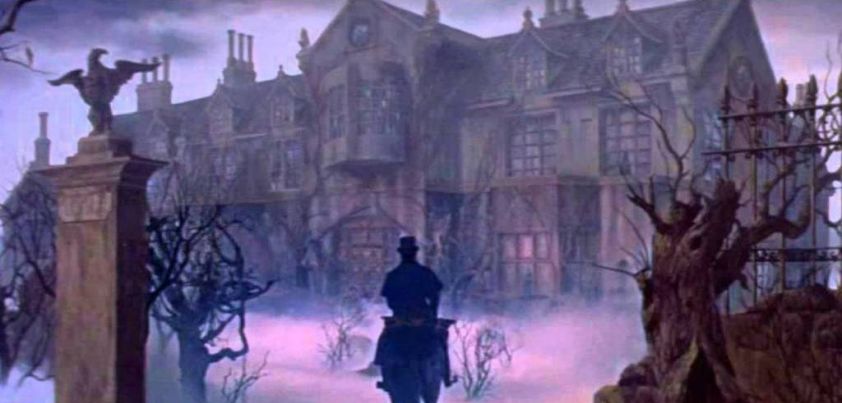 This Edgar Allan Poe story is a masterpiece of the Gothic Horror genre. A man visits a childhood friend in his crumbling family mansion to help him cope with an acute attack of depression. An interdependent relationship exists between the friend, his twin sister and the house (some say a shared soul), which ends in the downfall of all three. The story’s most remarkable feature is the almost total lack of physical action. The feeling of terror and impending doom develops solely from Poe’s descriptions of setting, characters, and atmosphere. Themes: isolation, friendship, fear, madness, the supernatural. More…
This Edgar Allan Poe story is a masterpiece of the Gothic Horror genre. A man visits a childhood friend in his crumbling family mansion to help him cope with an acute attack of depression. An interdependent relationship exists between the friend, his twin sister and the house (some say a shared soul), which ends in the downfall of all three. The story’s most remarkable feature is the almost total lack of physical action. The feeling of terror and impending doom develops solely from Poe’s descriptions of setting, characters, and atmosphere. Themes: isolation, friendship, fear, madness, the supernatural. More…
The Pale Man
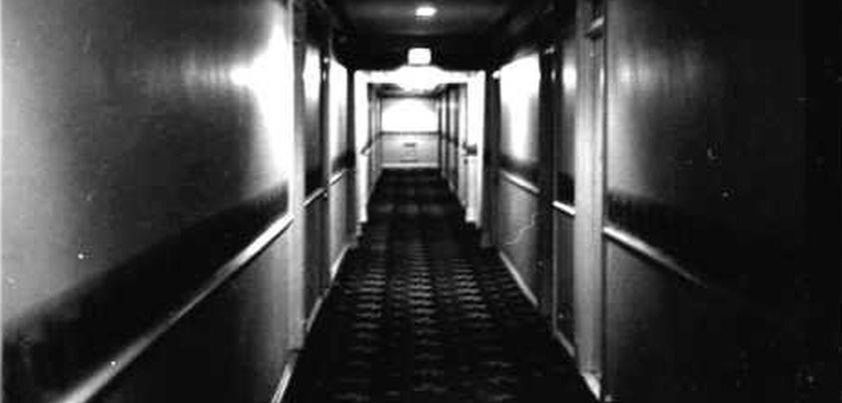 This is a short horror story by little known author Julius Long. A doctor tells a man suffering from nerves to have a long holiday somewhere quiet. The man checks into a hotel in a small town. However, the townspeople are unfriendly towards him and he finds it a lonely, dreary place. His only hope for stimulating conversation appears to be a tall, pale man staying in another room of the hotel. The pale man has some very strange ways, so the man asks the hotel room clerk about him. The room clerk tells him there is no such guest. More…
This is a short horror story by little known author Julius Long. A doctor tells a man suffering from nerves to have a long holiday somewhere quiet. The man checks into a hotel in a small town. However, the townspeople are unfriendly towards him and he finds it a lonely, dreary place. His only hope for stimulating conversation appears to be a tall, pale man staying in another room of the hotel. The pale man has some very strange ways, so the man asks the hotel room clerk about him. The room clerk tells him there is no such guest. More…
The Black Cat
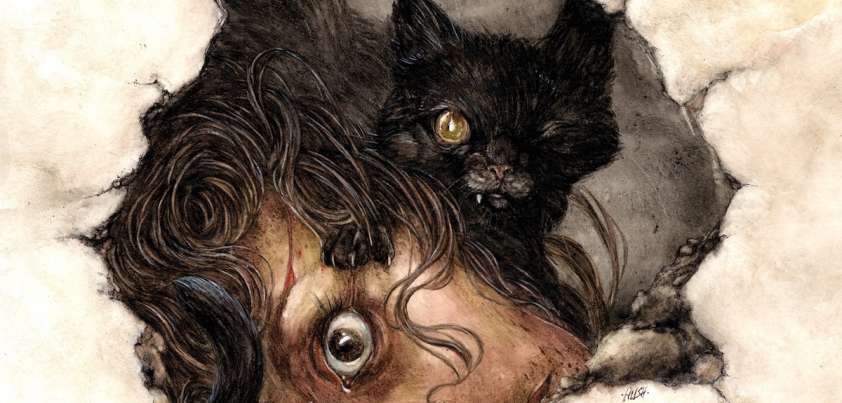 The Stephen Kings of the writing world tend to use external, often supernatural forces as their instruments of terror. With Edgar Allan Poe, the horror generally develops from the tortured mind of man. The protagonist here has lost his mind to alcoholism. Like many alcoholics, he becomes violent when in a drunken state. This is initially directed towards family pets. Extreme cruelty to animals can indicate psychopathic tendencies, and this proves true later in the story when he shows no remorse for any of his actions, including the murder of his wife. Themes: alcoholism, mental illness, brutality, death. More…
The Stephen Kings of the writing world tend to use external, often supernatural forces as their instruments of terror. With Edgar Allan Poe, the horror generally develops from the tortured mind of man. The protagonist here has lost his mind to alcoholism. Like many alcoholics, he becomes violent when in a drunken state. This is initially directed towards family pets. Extreme cruelty to animals can indicate psychopathic tendencies, and this proves true later in the story when he shows no remorse for any of his actions, including the murder of his wife. Themes: alcoholism, mental illness, brutality, death. More…
The Yellow Wallpaper
 This partly autobiographical story by Charlotte Gilman describes the experiences of a creative, imaginative woman suffering from post-natal depression. She follows the then (1890s) generally accepted medical advice to spend her time “resting” in semi-isolation. Gilman skillfully uses the setting to turn an otherwise clinical account of a mental breakdown into a chilling psychological horror story. Although living in a colonial mansion amid idyllic countryside, the poor woman spends most of her time in a prison-like room with creepy wallpaper. Major themes include the fallibility of doctors and our reluctance to question them, mental illness, freedom and self-expression, and gender roles in society. More…
This partly autobiographical story by Charlotte Gilman describes the experiences of a creative, imaginative woman suffering from post-natal depression. She follows the then (1890s) generally accepted medical advice to spend her time “resting” in semi-isolation. Gilman skillfully uses the setting to turn an otherwise clinical account of a mental breakdown into a chilling psychological horror story. Although living in a colonial mansion amid idyllic countryside, the poor woman spends most of her time in a prison-like room with creepy wallpaper. Major themes include the fallibility of doctors and our reluctance to question them, mental illness, freedom and self-expression, and gender roles in society. More…
Silent Snow, Secret Snow
 Conrad Aiken’s Silent Snow, Secret Snow is a psychological horror fantasy. It begins with a twelve-year-old boy (Paul) imagining overnight snowfalls. This leads to a growing fascination with snow, the thought of which provides relief from the mundane routine of his daily life, the ugliness of the world around him, parent-child conflicts, and awakening sexuality. As the imagined snowfalls increase, Paul begins to lose touch with reality. In the disturbing climax, his boy’s “snow voices” come alive and he completely withdraws into himself as they tell him a story. Major themes: mental illness, concealment, detachment and alienation. More…
Conrad Aiken’s Silent Snow, Secret Snow is a psychological horror fantasy. It begins with a twelve-year-old boy (Paul) imagining overnight snowfalls. This leads to a growing fascination with snow, the thought of which provides relief from the mundane routine of his daily life, the ugliness of the world around him, parent-child conflicts, and awakening sexuality. As the imagined snowfalls increase, Paul begins to lose touch with reality. In the disturbing climax, his boy’s “snow voices” come alive and he completely withdraws into himself as they tell him a story. Major themes: mental illness, concealment, detachment and alienation. More…
The Signal-man
 Many Charles Dickens stories feature ghosts. Part of the attraction of The Signal-man is that, although generally considered one of these, there is no hard evidence of a ghost. Dickens masterfully uses setting to create a forbidding, unearthly atmosphere, and then leaves the question of the ghost to the reader. Like all first-person stories, the narrator’s version is open to misinterpretation and bias. The only evidence of the supernatural are the ghostly sightings described by the (now dead) signal-man, and some (potentially coincidental) shared expressions and gestures. Themes: duty & responsibility, fate, isolation, guilt, sanity, the supernatural. More…
Many Charles Dickens stories feature ghosts. Part of the attraction of The Signal-man is that, although generally considered one of these, there is no hard evidence of a ghost. Dickens masterfully uses setting to create a forbidding, unearthly atmosphere, and then leaves the question of the ghost to the reader. Like all first-person stories, the narrator’s version is open to misinterpretation and bias. The only evidence of the supernatural are the ghostly sightings described by the (now dead) signal-man, and some (potentially coincidental) shared expressions and gestures. Themes: duty & responsibility, fate, isolation, guilt, sanity, the supernatural. More…
The Boarded Window
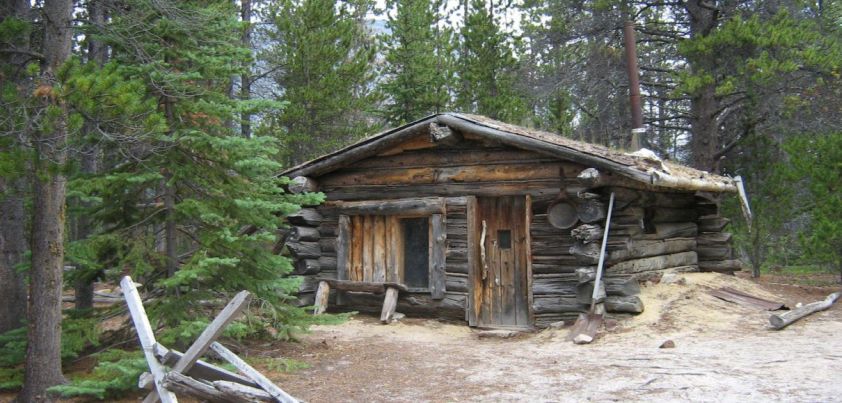 In this short gothic horror story from Ambrose Bierce, a boarded window symbolizes a grieving and possibly PTSD affected man’s desire to shut himself off from the outside world. Murlock shows no signs of traditional mourning over his wife’s passing, so his decision to live as he does could well result from a sense of shame and/or guilt over his part in her death. As we have only his version of the night’s events, it could even be that (with or without a panther) his wild shot was the reason for her throat wound! Themes: isolation, death, shame/guilt, loneliness. More…
In this short gothic horror story from Ambrose Bierce, a boarded window symbolizes a grieving and possibly PTSD affected man’s desire to shut himself off from the outside world. Murlock shows no signs of traditional mourning over his wife’s passing, so his decision to live as he does could well result from a sense of shame and/or guilt over his part in her death. As we have only his version of the night’s events, it could even be that (with or without a panther) his wild shot was the reason for her throat wound! Themes: isolation, death, shame/guilt, loneliness. More…